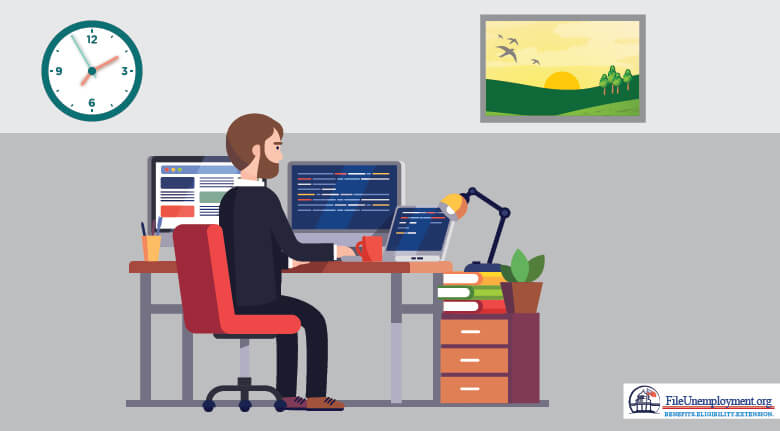When it comes to improving on a personal and professional development front, we tend to take a step back when it comes to self-improvement. Normally, we would sit back and wait for the performance review to look at areas of improvement. This would include improving your skill set, setting personal benchmarks and reviewing them. Also, learning leads to a better quality of life improves confidence and personal development. It also influences our lives in a positive way. You should know that improvement comes from within and you need to take control of that.
Goals That Will Help You Execute Work Better
These are 27 goals that you should take control of to improve your reputation and performance at work, reach new skill levels and professional development:
1) Organize & Prioritize
The first thing that you should do is create a daily schedule and follow it. You should identify the top projects that you need to complete. Create a task list that is manageable, has a sense of purpose and adds value.
2) Stop Multitasking
Ensure that you stop multitasking on several projects at once. This is because in reality the quality of work is compromised and it lowers IQ and EQ, slows you down and increases stress which in turn creates a lot of mistakes. You should then look to unitask instead and make the most of your time.
3) Discover Your Boss’s Style
Think that you are the boss for one moment. The most important thing to do is to build an effective strategy which means that you should empathize and discover your boss’s style. This will help you imagine what they are looking for in an employee. You should know what it is dealing with employees and your subordinates. You can ask your boss a series of question that will help you get to know them and how to set an agenda based on how to manage your boss. The main thing is to understand your boss’s style and orientation and to stay one step ahead always.
4) Avoid Distractions
You should know that focus is a fundamental quality of productive people. So the best thing to do is ensure that you focus on a single task at hand. In time, you should practice staying focused and strive to complete one task and moving to the next.
5) Manage Interruptions
It can be easy to minimize or forget the number of times that you are interrupted in a day. You never know where interruptions could come from. This could come from all directions like co-workers, bosses, and family. The best way to manage interruptions is to keep a stack of post-it notes and index cards nearby. Write on top of each one and write down a person’s name of people that might interrupt you during the day. Next time, they ask you for something, you should also talk to them about points on things that need to be addressed. Just think of the amount of time that you would save by doing three to four things at once rather than doing this three or four times a day for each item.
6) Relationship Building
Try to create a strong relationship with colleagues that are outside to your immediate area of responsibility. One of the books that stress on this is the best selling Getting More: How To Negotiate to Achieve Your Goals in the Real World, Wharton Business School professor Stuart Diamond notes that “companies, even small ones, can be very political places.” He suggests that allying with people will help you including employees that have been there for a long time. You might have overlooked others especially those that work in HR, staffers and the IT department.
7) Be a Great Finisher
There are many of us that are great starters but not finishers. There is always some reason that we fall short. You should think about how many times that you started something new. This would mean a project, a New Year’s Resolution and reflect on it to demonstrate your accomplishments and contributions.
8) Start Early
To be as effective as possible, you should start your day early. This means that if you arrive 15 minutes before you usually do, then you should get an early start and be a step ahead with the day’s tasks. Also, you should reward yourself later with maybe a longer lunch break or a departure for a home that comes earlier than the stipulated time.
9) Set Milestones
When it comes to completing a big project, it could be quite overwhelming. This should not stop you from taking time to celebrate small achievements. You should break large projects into blocks of mini-tasks and create individual success metrics. This is great to keep you on a high morale and improve your energy levels. After which, you should review your progress and reward yourself.
10) Wear the Bosses Shoes
Think of stepping into the boss’s shoes. Look at the big picture and look at the goals from their perspective. The best thing to do is to make effective strategies that will allow you to discover or empathize their aspirations. Ask yourself questions like “What are they looking for in an employee?”, “What skills should I know?” or “What are the qualities needed to be successful in your position?”
11) Get a Mentor/Be a Mentor
You can enhance and grow your skills by being a mentor. As a mentor, you can offer a new insight, vision, and perspective. You should work with a mentor and stretch your thinking and supply with a stream of self-development ideas based on talent and skills. You should not forget to gain experience by mentoring someone else and facilitate your own professional growth that will help you with your position and make you an asset to your firm.
12) Simply Listen
Pay attention to listening as it is important to effective communication. You should spend time thinking about how to listen without interrupting others. If you have matured your listening skills then you would have increased your productivity with lesser mistakes, higher client satisfaction rates, and innovation.
13) Aim for Clarity
You should look for clarity and with clarity, it improves confidence. You should always make it a point to ask questions when you are not 100 percent sure of your responsibilities. Then you should schedule time quarterly to re-evaluate goals, review if your responsibilities have fulfilled these goals and how to better partner with team members to reach your goals.
14) Research
Another important tool that you should add to your skill set is research. You should look at not wasting other people’s time and doing your homework before taking on any new task. This will make you better prepared to meet the present strategies that will help you reach and accomplish each objective.
15) Write a Letter to Your Future Self
Ask yourself, “Where would you see yourself in 1, 3 and 5 years time? What would be the same? What would be different? Also, write a letter to yourself and work extremely and constantly become that person.
16) Identify Your Blind Spots
Look for blind spots that you are unaware of especially about ourselves and this could cause good intentions that are usually perceived in a negative light. Usually, if you are not careful then you would tend to ignore this. You should look at yourself honestly and ask for feedback from others and be willing to make changes. Then you should reach out to your peers to ask how you are perceived and discover behaviors. These behaviors could either hinder or strengthen your influence and you should be aware of this. You should view this feedback as an asset instead of a judgment and then you should realign your reputation to the ideal person that you should be.
17) Simplify Something
You should look at simplifying things, this is because you should make things less messy and less complicated. You should find ways for each week to simplify or automate a difficult system or process. This could include a messy office, checking emails and doing daily tasks. This could help you improve efficiency and keep things simple.
18) Ask Questions
You should constantly push yourself to the edge for self-improvement. Keep asking yourself if there is a more effective way to achieve the same results. Determine if you are working as efficiently as possible. This can be done by brainstorming. You should always believe that things should be improved.
19) Know Your Competition
Learn about your competition and observe them keenly. You need to identify if what they are doing is right and you should use it as a learning opportunity. After which, you should ensure that you should implement something new at the firm.
20) Acknowledge Others
When it comes to work, it’s all about teamwork. You should learn to help others, give credit wherever its due and be grateful. You will be surprised at how your encouragement and motivation would be a simple way to make the team feel wholesome. A simple “Great Job!” would help the team rise and grow together.
21) Read
You should read on personal development or articles based on your industry every day. Start with reading a journal and then start recording notes. Then you should identify what you have learned and look at how you can apply your findings in your work and personal space. After which, you should share this information with others to establish expertise.
22) Give Yourself Down Time
There’s nothing like a good vacation for professional development. Otherwise, you will have a lot of stress and in time there could be a burn out that increases and productivity decreases. You need to schedule time away from work to refill and rejuvenate yourself for a healthy work-life balance.
23) Practice Humility
The best thing you should practice is humility and not self-promotion. You should encourage team members and have a high respect for their unique skill sets and important contributions. Another important driver is passion. If you love what you do then you will put your best work forward and perform at your best. These values will be reflected and respected in your personal and professional life based on its true meaning and how you go about it.
24) Eat Healthy Foods
You should consume healthy food throughout the day to avoid energy crashes and for your brain to be fueled properly. Food is imperative for boosting brain power and creating impact and productivity. Junk food only affects your weight. It causes decreased productivity and energy crashes.
25) Get Moving!
You should exercise as its important for your mind and body. Exercising is known to reduce stress hormones and increasing growth factors in the brain are necessary for neuronal connections. It’s better to work out in the morning as its difficult to motivate yourself after a really long day. However, the most important thing is to be consistent.
26) Delegate like a Boss
Ever wonder if it’s possible to complete all the work on your plate? This is why you should delegate. You should be willing to outsource some low-value tasks. You can connect with online services that will help get tedious tasks done.
27) Treat Yourself to Motivate Yourself
You should look at making effective ways to manage your habits and your productivity. You need to train your brain to focus on goal-oriented tasks. Also, you should learn to reward yourself after completing things on the do-list. In short, people that are happy and feel good are more productive than those that are not.
So if you are between jobs and not sure what to do, then you have come to the right place. All you have to do is apply for your benefits. We at UnemploymentCalculator.org have the right set of tools: Benefits Calculator, Eligibility Calculator, and Base Period Calculator and information to help you on your way.




Comments are closed.